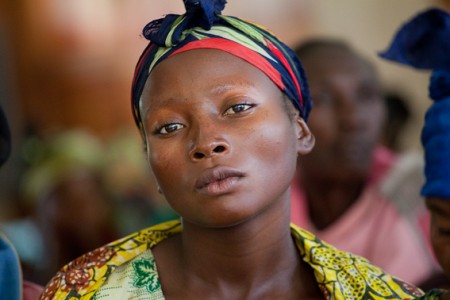
Last Sunday, 17 October 2010, over 1,700 women marched through the city of Bukavu in the strife-torn eastern region of the Democratic Republic of Congo (DRC) to protest against the prevalent sexual violence against their gender.
Margot Wallstrom, the UN Special Representative on Sexual Violence in Conflict, calls the DRC the “rape capital of the world” and estimates that 35,000 women have been raped there since January of this year alone. With neither the Congolese army, nor the UN troops seemingly willing or able to guarantee public safety, the organizers of the march decided to take their demands to the public arena, hoping to draw international attention to the plight of Congolese women.
Since fighting broke out in 1998, a horrendous number of girls and women have been raped in the DRC, and it is estimated that there are as many as 200,000 surviving rape victims living in the country today. Unfortunately, the scale of rapes and sexual violence has not diminished in the last years. On the contrary: the illegal, yet highly lucrative exploitation of natural resources in the DRC has attracted increasing numbers of militias into the region, all of which are using rape as a weapon of war.
Rape has been a follower of war for as long as armies have marched into battle. In the 20th century, perceptions of rape in war have moved from something that is inevitable when men are deprived of female companionship for prolonged periods of time to an actual tactic in conflict. In the DRC today, most of the warring parties of the conflict – including the Congolese Army, Rwandan Hutu rebels, and Congolese Tutsi rebels – are using this weapon as means to humiliate the enemy and undermine their morale. As a result, it has become more dangerous to be a woman than a soldier in the DRC today.
Rape is the most intrusive of traumatic events. Sexual violence is as damaging as a bullet. It destroys not only the body of the victim, but the basic social fabric of the community. The atrocities that are currently committed against women and children will leave a devastating imprint on the DRC for years to come. Where sexual violence has been a way of war, it destroys the way of life. Rape shatters traditions that anchor community values, disrupting their transmission to future generations. Children accustomed to rape and violence grow into adults who accept them as the norm.
On 1 April 2009, the UN launched an overall strategy for combating sexual violence in the DRC. This is a welcome step. However, their strategy will be nothing but empty words in the absence of robust engagement at all levels of the Congolese civilian and military hierarchy. The Congolese authorities need to take steps to enforce appropriate military disciplinary measures, and arrest warrants need to be issued for senior commanders who have used sexual violence as a weapon of war. Furthermore, the perpetrators of rape and sexual violence (not only in the DRC, but in all conflicts across the globe) must be barred from any amnesty provisions, from any benefits of disarming and returning to civilian life, and from any role in politics or government.
Rape as a weapon of war is not a cultural symptom. Nor is it sexual. It is criminal. Rape is torture, a slow form of murder. Women’s lives and their bodies have been the unacknowledged casualties of war for too long. We must stand up and march alongside them.
Check out the ISN’s resources on the DRC, War Crimes or Rape for further information.

